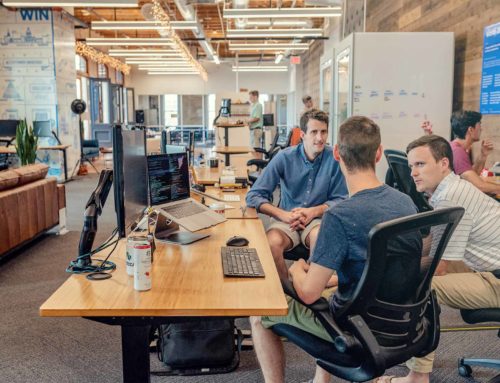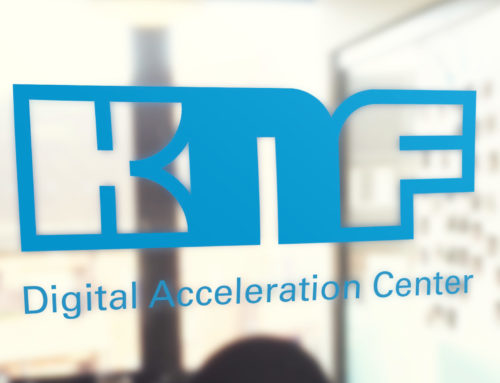Digital Transformation and mid-sized businesses—a conversation with Martin Becker, CEO of the family-owned KNF company – Part 1
KNF was founded in Freiburg im Breisgau in the year 1946 and began developing, producing and distributing diaphragm pumps in 1962. This family business, which is still independently owned today has continued to flourish since then, and has set new pump technology standards by pioneering its applications as well as by capturing new markets. In the late 60s the company also established an international presence by founding a subsidiary in France. With 16 subsidiaries and five production sites, the KNF group has more than 700 employees worldwide today. By offering an extensive range of application-specific pumps and systems, KNF has been a technological leader for decades. Numerous customers—from industries as varied as aerospace or Formula 1—trust KNF as a global, organically-growing supplier of long-lasting and reliable products.

Martin Becker has been active at KNF for 32 years and became sole managing director in the year 2000, when he took over the reins from his father. He is married and has 4 children, with one of them already working in the company.
Martin, in your opinion, what are the opportunities as well as the challenges mid-sized companies such as KNF face today?
We are privileged to live in an era when technological advances are made by leaps and bounds. In the past, we had good reason to be very careful with any information we passed on to the outside or allowed to come into the company. We had and continue to have a competitive advantage thanks to our know-how. Digitalization, technology start-ups and new technologies such as 3D printing have put us under pressure and made us change our approach. We have to shorten our development times, have to understand our customers even better and have to match our customers´ experience to the expectations of engineers of the younger generations in particular.
Our big challenge will be to strike the right balance in the process. How open can we be without jeopardizing our know-how advantage? Which technologies and trends are truly relevant to our customers? What types of digital cooperation will increase the efficiency of decentralized organizations such as ours?
How do you define your role as CEO with respect to digital transformation?
To date, I have yet to read a study that shows that digital transformation happens from the bottom up. Change always starts at the top. And then, as the CEO, I looked up and realized there was nobody else, so obviously any change had to start with me.
I´m in my 50s, which means I have internalized many routines and approaches that have guided my daily work routine for the last 32 years. Since I started getting involved in the digital realm, my way of thinking about these things has changed.
What´s most difficult is to have the necessary discipline to „stick with it“ and not to revert to old patterns. And the old way of doing things remains much more efficient for quite some time, of course, simply because you have an incredible amount of experience doing it that way. But if you give it enough time and develop new routines, you will notice just how much simpler and more efficient your work day will become.
You just spent some time in Silicon Valley— what did you take away from your visit?
I do have to say, their mindset was especially impressive. We often think in small iterations. How do we increase the efficiency of our engines by 3 % or how can we speed up a process by 10%? In Silicon Valley expectations are quite different. At Google, for example, they are talking about the factor 10, not about 10%. That is the mindset I would like to take root in our heads as well. Of course we still need incremental innovations going forward. We will continue to optimize our products and develop new variations. But we also have to think about tomorrow and the day after. How can we as an industrial business become five to ten times better than today? Can we manage on our own or do we need a lot more interaction, cooperation and joint development efforts internally as well as with our suppliers and customers? „Open up and think bigger“ was a big revelation in my books.
Obviously this doesn´t happen from one day to the next. We have to support our employees and allow for set-backs as well. We have to have the courage to let a project fail early on and to promptly analyze such failure, in order to learn from our mistakes much more quickly.
You could say that Silicon Valley and a mid-sized machine manufacturer don´t have much in common. What´s your opinion on that?
At first glance that´s correct. Many companies located there build their business based on software solutions, which means they don´t offer any tangible products. But it´s really not my intention to turn KNF into a software company anyway. Much rather, I focus on what makes these companies successful and why their products can be found worldwide. Their approach can then in turn be applied to a mid-sized company like ours as well. In my opinion, there are essentially two main components driving their success: First, it is their extreme customer focus. Take Google´s approach for example: “It is never the customer´s fault. The problem lies with us or rather our products.“ We have to find solutions that will make every individual in our target group happy with our products. And the second factor is directly based on the first. We have to start thinking in Use Cases. As a company that historically focused on engineering and products, we have invested heavily in research and development in the past, just to find out in some cases that our solution might not address the customers´ main problem. It is much more efficient to describe a use case and develop a solution accordingly, especially when dealing with short iterations and fast prototypes.
Read part 2 of the conversation.





